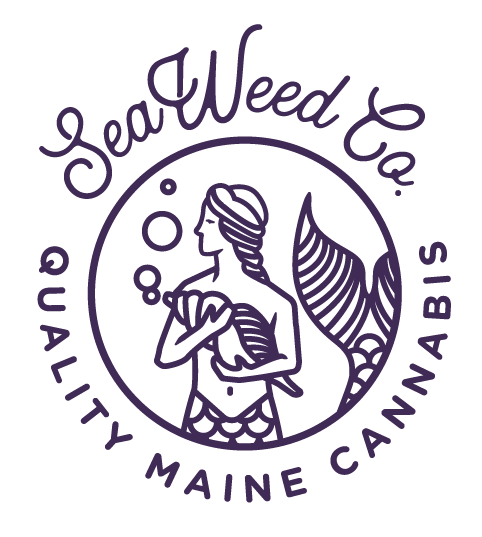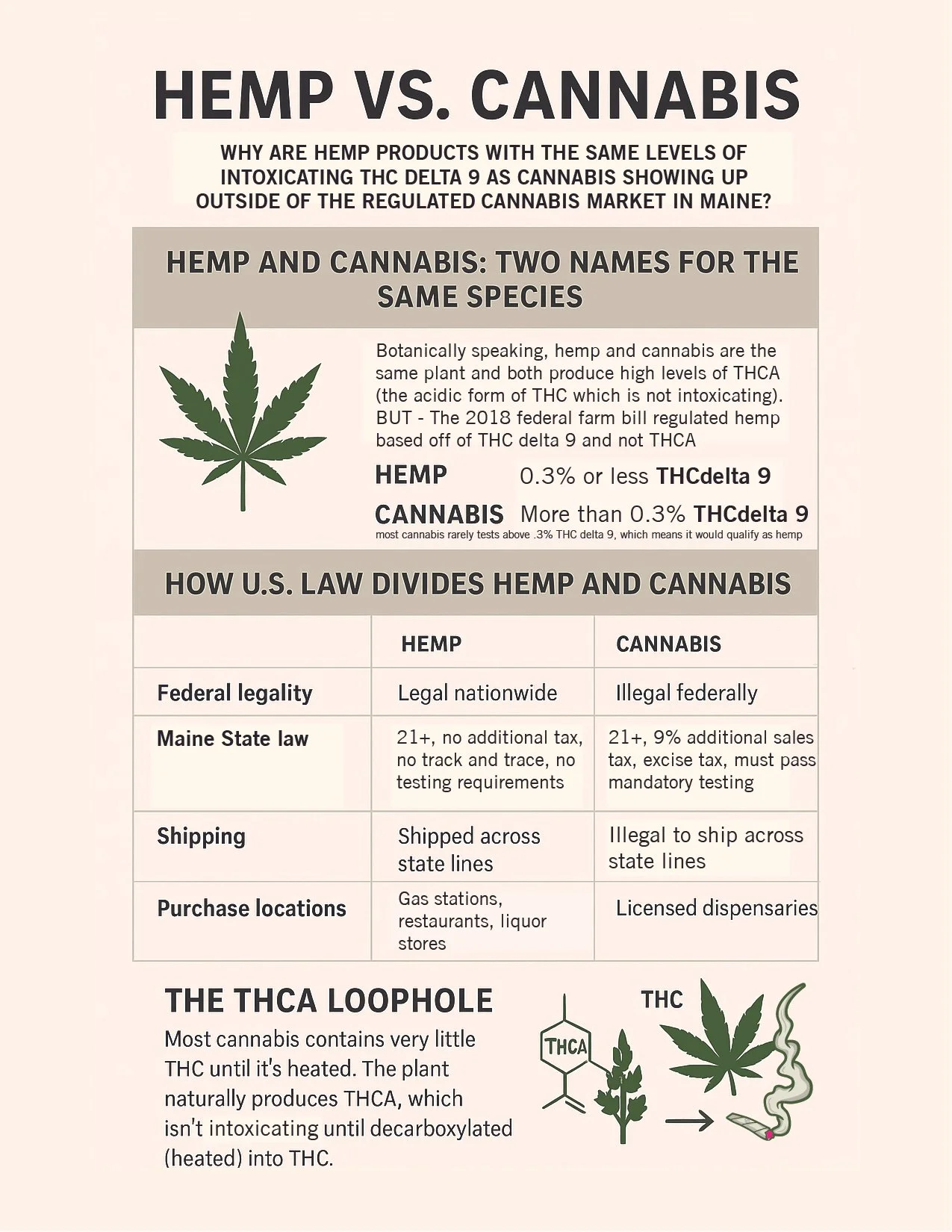Hemp vs. Cannabis: Same Plant, Different Rules — What It Means for You as a Consumer
If you’ve ever wondered why hemp products can be shipped across state lines while cannabis products are often confined to dispensaries, you’re not alone. The truth is, hemp and cannabis are the same species of plant — Cannabis sativa — but treated very differently under the law. These regulatory differences can be confusing, and they directly impact what you can buy, where you can buy it, and how it can be used.
In this article, we’ll break down:
The botanical reality: why hemp and cannabis are the same plant.
The legal line that separates them.
The “THCA loophole” and why most raw cannabis is actually low in THC until heated.
How regulations affect product availability, quality, and safety for consumers.
What to look for when buying hemp or cannabis products.
1. Hemp and Cannabis: Two Names for the Same Species
Botanically speaking, hemp and cannabis are simply different varieties of the same plant species, Cannabis sativa. The plant’s appearance, aroma, and effects depend on its genetics and chemical composition — particularly its THC (tetrahydrocannabinol) content.
Hemp is legally defined in the U.S. as Cannabis sativa containing 0.3% THC or less by dry weight.
Cannabis (marijuana) refers to plants with more than 0.3% THC, which is enough to cause psychoactive effects.
In other words: same species, different chemical thresholds.
2. How U.S. Law Divides Hemp and Cannabis
The legal separation started with the 2018 Farm Bill, which removed hemp from the federal Controlled Substances Act. This change allowed hemp — and hemp-derived products like CBD oil, hemp flower, and delta-8 THC — to be sold nationally, as long as they meet the 0.3% THC limit.
Cannabis, however, remains federally illegal, though many states have legalized it for medical or recreational use. This patchwork of state laws creates a very different marketplace:
CategoryHemp (≤0.3% delta-9 THC)Cannabis (>0.3% delta-9 THC)Federal legalityLegal nationwideIllegal federallyState lawsMostly unrestrictedVaries — medical, recreational, or prohibitedShippingCan be shipped across state linesCannot cross state lines legallyPurchase locationsOnline, health stores, smoke shopsLicensed dispensaries only
3. The THCA Loophole: Why “Low THC” Cannabis Can Still Get You High
Here’s a key detail most people don’t realize:
In its natural state, cannabis contains very little delta-9 THC. Instead, it’s rich in THCA (tetrahydrocannabinolic acid), a non-intoxicating compound that converts into THC when heated — a process called decarboxylation.
This matters because the federal definition of hemp is based only on delta-9 THC content, not THCA. That means a flower could test at 0.2% delta-9 THC (legally hemp) but have 15–20% THCA, which will become potent THC when smoked, vaped, or cooked. In fact most of the cannabis grown in the regulated market actually has delta-9 THC levels of hemp, this is why many of the hemp products you see are exploiting a loophole.
Why it’s called the “THCA loophole”:
Federally: Only delta-9 THC counts toward the 0.3% limit.
In some states: Laws measure “total THC” (delta-9 THC + THCA), closing the loophole.
In others: High-THCA hemp can be sold and shipped nationwide, even though its effects are comparable to dispensary cannabis.
For you as a consumer:
Always read the full lab report (Certificate of Analysis) for both delta-9 THC and THCA.
Expect intoxicating effects from high-THCA hemp flower after heating.
Check your state laws — in “total THC” states, the same product could be classified as marijuana.
4. What This Means for the Consumer
The regulatory split between hemp and cannabis has three main effects for buyers:
A. Product Access
Hemp products can be ordered online and delivered to your door, making them accessible even in states without legal cannabis programs. Cannabis products can only be purchased in licensed dispensaries within legal states.
B. Quality & Testing Standards
Licensed cannabis is often subject to strict state-mandated testing for pesticides, heavy metals, and potency. Hemp products aren’t always regulated to the same standard — making third-party lab testing essential.
C. Potency & Effects
Hemp products won’t produce strong intoxication if they are truly low in THC and THCA. However, high-THCA hemp flower will have similar psychoactive effects to cannabis once heated.
5. How to Shop Smart
Whether you’re buying hemp or cannabis:
Look for Certificates of Analysis (COAs) — These third-party lab results verify cannabinoid content and check for contaminants.
Know your cannabinoids — CBD is non-intoxicating, delta-9 THC is the main psychoactive compound, and THCA turns into THC when heated.
Understand local laws — Even though hemp is federally legal, some states restrict certain hemp cannabinoids or regulate total THC.
6. The Bottom Line
Hemp and cannabis are two legal categories of the same plant. The difference comes down to a single number — 0.3% delta-9 THC — yet chemistry and regulation make the real-world picture much more complex. The THCA loophole means some hemp products can mimic cannabis effects, depending on state law. Understanding these details helps you shop smarter, stay compliant, and choose the right product for your needs.



